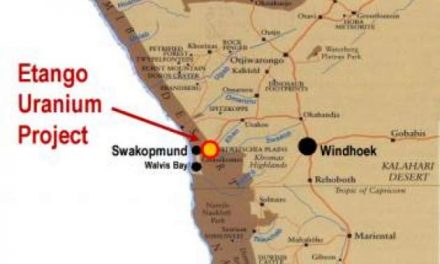
Mining companies urged to embrace resource nationalism
Australia’s mining fraternity has been encouraged to embrace resource nationalism in Africa more fully to extract greater, longer term, and more mutual economic and social benefits from their presence on the continent
Speaking on the first day of this year’s Paydirt Africa Down Under conference, Gold Field Limited’s Chief Executive, Nick Holland, said resource nationalism was entirely rational and had to be viewed in the context of “growing the pie, not shrinking it.”
Holland said the industry and equity market’s disconnect with resource nationalism – defined as the efforts by countries to extract maximum value and developmental impact for their people from their finite natural resources – was simply due to an overdose of “too many fingers in the wrong pie.”
“The mining industry globally has made its pie look more attractive than it is by focusing on cash cost, not all-in sustaining cost,” Holland said, “so we have not been growing the right pie.”
“Mining economies can create jobs, fuel development and attract investment capital but we have created a false sense that there’s a bigger slice to take,” he said.
Africa is home to more than 250 Australian miners, explorers and suppliers.
Holland said the mining industry is going through tough times and in reality, margins and returns from mining are in decline, best exampled by the fact the world’s top 40 mining companies are experiencing serious financial troubles and the industry is not self-funding.
“Operating cash flows are not sufficient to cover investments, investors are deserting the sector and the equity model is at breaking point, leading the industry to halt new investments and cutback on existing operations.”
Holland said mining’s revenue pie showed just how little there was to take so it was the wrong pie and the losing pie in terms of valuing enhanced resource nationalism.
“Very simply, the more everyone takes, the greater the risk the pie shrinks, and that jeopardises future investment and that means job, GDP and social losses,” Holland said.
He said GDP growth is essential for governments targeting effective development and economic transformation, and mining GDP is the right pie, especially for resource-rich developing countries.
“In 2010, the economies of 40 countries were driven to a significant extent by mining, and accounted for around 25% of exports.
“The reality is the mining economy can punch above its weight with its GDP multiplier effect as one direct mining job supports one indirect job and one impacted job – and in South Africa, one job supports on average of around nine dependants.
“But the benefits of sustained mining go beyond jobs. Investing in mining creates jobs, investment and uplifts communities so growing mining activity has a dramatic impact.
“So growing GDP through mining is the win – win pie on which to focus as countries like Chile have achieved by focusing on long term investment to establish a market economy, strong institutions and transparent and stable fiscal regimes.
“There are key contributing factors – strong long term partnerships to ensure mutual success, limited government involvement in mining production, and investment by government in social transformation including infrastructure and education in mining communities.”
However, Holland said it was critical that national resources interests were aligned with those of investors.
He said this could be achieved through acknowledging the role mining companies have played historically in exploiting resources and people and recognising that both a mining licence and a “social licence” are required to operate.
“Australia and Africa must develop practices that crack the code on long-term sustainable community development – beyond life of mine – and engage with government on how to fund infrastructure development, fuel growth in other sectors and improve social outcomes
“Mining has to move from philanthropy to systematic creation of shared value, recognising the impact of the GDP multiplier effect.”












































